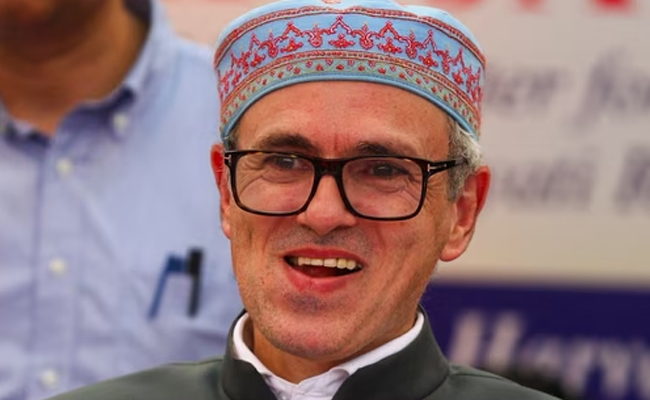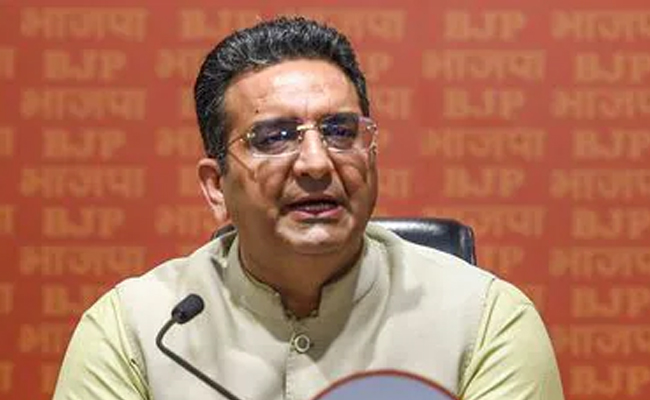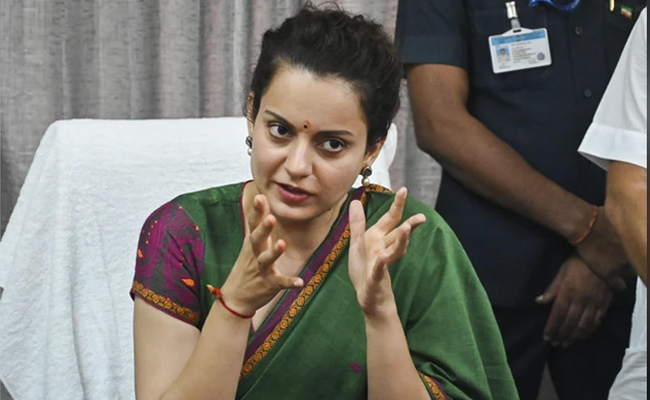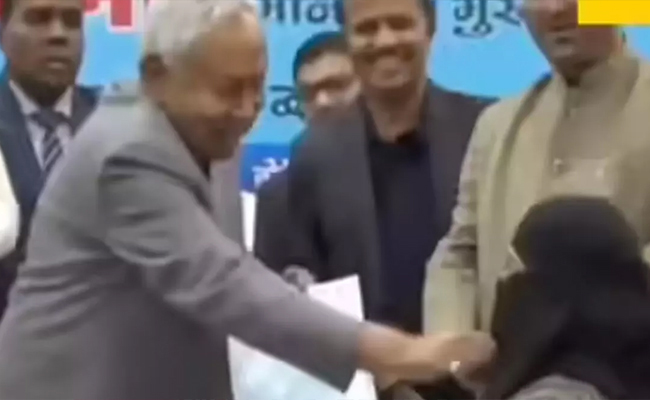Thane, Aug 13: Eighteen patients have died in the last 24 hours at the Chhatrapati Shivaji Maharaj Hospital in Kalwa in Thane, civic commissioner Abhijit Bangar said on Sunday.
These comprise 10 women and eight men, of which six are from Thane city, four from Kalyan, three from Sahapur, one each from Bhiwandi, Ulhasnagar and Govandi (in Mumbai), one patient is from some other place and and one is unidentified, he said.
Twelve of the deceased were above the age of 50, Bangar added.
Earlier, state health minister Tanaji Sawant and local Deputy Commissioner of Police Ganesh Gawde had put the number of deaths at 17.
Addressing a news conference, Bangar said Chief Minister Eknath Shinde had taken feedback about the situation and had ordered the setting up of an independent probe committee that will be headed by the commissioner of health services and will include collector, civic chief, director of health services, interventionist at state-run JJ Hospital in Mumbai and civic surgeon.
It will carry out probe into the clinical aspect of the deaths, he added.
These patients had complications of kidney stone, chronic paralysis, ulcer, pneumonia, kerosene poisoning, septicemia etc, he said.
"The line of treatment will be probed and statements of kin of the deceased etc will be recorded. Allegations of negligence levelled by some kin is a serious matter, which the probe committee will look into," Bangar said.
"The entire COVID staff of 500 has been shifted to this hospital and additional nursing staff has been appointed. We are also aiming to have round the clock post mortem facility here," he told reporters.
Earlier in the day, state health minister Sawant said the dean of the hospital had been asked to submit a report in two days.
A Thane Municipal Corporation official said the deaths were being analysed and several civic officials are at the heavily-patronised facility for inspection of records etc.
Speaking to PTI, Deputy Commissioner of Police Ganesh Gawde said, "We have information of 17 deaths in the last 24 hours. We have been told the usual figure per day is six to seven."
"The hospital management told us some of the patients arrived there in a critical stage and succumbed during treatment. Some were elderly. We have increased police presence at the hospital to avoid any untoward incident due to these high number of deaths," the DCP informed.
Speaking on the issue, Sawant said, "Of these 17, a total of 13 were in the ICU. A few days ago, five patients had died in the hospital. The state government has asked the dean to submit a report in two days."
"Action will be taken as per the report of the dean. This hospital comes under the state medical education and research department. Its minister Hasan Mushrif has reached the hospital and he is looking into the matter," Sawant told reporters in Pune.
Nationalist Congress Party chief Sharad Pawar called the deaths heart-breaking and said the administration did not wake up despite five deaths at the facility in a single day recently.
Maharashtra minister and BJP leader Girish Mahajan said "16 deaths" in a a single day in a hospital with a capacity of 500 was a matter of concern.
NCP leader and MLA from the region Jitendra Awhad said the hospital was mismanaged and asked the administration to set things right before it was too late.
State minister Aditi Tatkare, who visited the hospital, called the deaths unfortunate and said the Maharashtra government will take all efforts to ensure such an incident is not repeated.
Nationalist Congress Party spokesperson Clyde Crasto sought a detailed inquiry into the deaths.
Chief Minister Shinde belongs to Thane and the medical negligence leading to these deaths took place in his backyard (Thane is the stronghold of Shinde), Crasto said.
It goes to show Shinde is not paying attention to Thane and is "probably so busy in breaking and forming governments that he has no time for his own people", the NCP leader alleged.
State NCP chief Jayant Patil too slammed CM Shinde, saying the latter boasted about "government at your doorstep" but there was lack of medical facilities in his own backyard.
Former Thane mayor Naresh Mhakse, who is also spokesperson of the Eknath Shinde-led Shiv Sena, said the hospital was "over loaded" and was treating 650 patients per day against a capacity of 500.
The civil hospital in the area is being renovated so the load falls on this facility in Kalwa, Mhaske claimed.
Hospital sources, meanwhile, said some doctors were down with dengue which was also affecting the running of the facility.
Local MNS leader Avinash Jadhav sought proactive measures to improve the efficiency of the hospital.
Let the Truth be known. If you read VB and like VB, please be a VB Supporter and Help us deliver the Truth to one and all.
Srinagar (PTI): Jammu and Kashmir Chief Minister Omar Abdullah on Wednesday criticised his Bihar counterpart over the niqab incident and said that Nitish Kumar might be slowly revealing his true nature.
"Nitish Kumar, who was once considered a secular leader, may be slowly showing his true colours," Abdullah told reporters here on the sidelines of a function.
Abdullah said Kumar removing the face veil of a Muslim woman doctor was wrong and cannot be justified by any means.
"We have seen this kind of incident here several years ago. Have you forgotten how Mehbooba Mufti removed the burqa of a legitimate voter inside a polling station? That act was wrong, and this act (of Kumar) is also wrong.
"If the (Bihar) chief minister did not want to hand over the order to her (Muslim woman), they could have kept her aside. However, to humiliate her like this is totally wrong," the Jammu and Kashmir chief minister said.
Kumar stirred a huge controversy after he removed the face veil of a Muslim woman at a function earlier this week.





